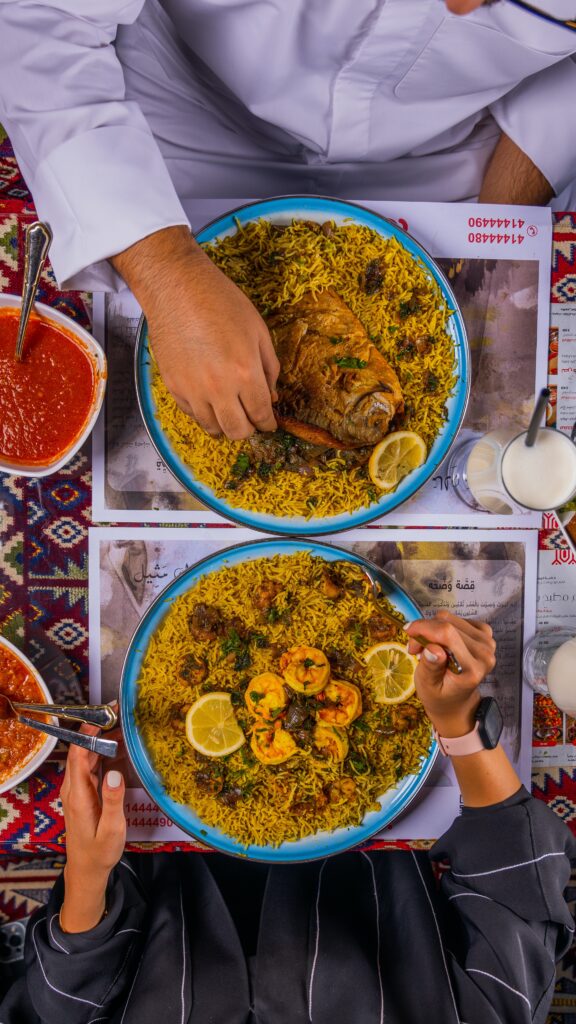Introduction
Arabic cuisine is a treasure trove of flavors, aromas, and culinary traditions, each with its own unique charm. Among the many delectable dishes, Mandi stands out as a quintessential Arabic delicacy that has captivated palates around the world. With its rich history, distinct cooking method, and mouthwatering variations, Mandi has become a symbol of Arabic hospitality and gastronomic excellence.
Origins of Mandi
Mandi traces its roots back to ancient Arabia, particularly the southern regions of Saudi Arabia and Yemen. This traditional dish holds a special place in the hearts of Arabs, representing their rich cultural heritage and Bedouin traditions. Historically, Mandi was prepared in large quantities by nomadic tribes who roamed the deserts. Over time, it evolved into a popular celebratory dish served on special occasions, such as weddings and festivals.
Cooking Technique
The hallmark of Mandi lies in its unique cooking method, which involves slow-cooking marinated meat and fragrant rice to perfection. Traditionally, lamb or chicken is the meat of choice for Mandi, offering a succulent and tender texture.
The preparation begins with marinating the meat in a flavorful blend of spices, such as cardamom, cinnamon, cloves, black lime, saffron, and other regional favorites. The marination process allows the meat to absorb the aromatic spices, infusing it with a depth of flavor.
Next, a large metal or clay pot is used to cook the Mandi. The pot is heated over a low flame, allowing the meat to slowly cook and tenderize. As the meat simmers, it releases its natural juices, melding with the spices to create a rich and aromatic broth.
In a separate pot, long-grain Basmati rice is cooked, often infused with the same spices used in marinating the meat. The rice absorbs the flavors of the broth, resulting in a fragrant and flavorful accompaniment to the tender meat.

Variations of Mandi
Madhbi is a variation of Mandi that originated in the southern regions of Saudi Arabia and is particularly popular in Yemen. The word “Madhbi” translates to “grilled” in Arabic, highlighting the distinguishing feature of this variation—grilling the meat instead of the traditional slow-cooking method.
In Madhbi, the meat, often lamb or chicken, is marinated in a blend of spices, including cumin, coriander, turmeric, and chili powder, to create a flavorful coating. The marinated meat is then grilled over hot charcoal or an open flame, resulting in a beautifully charred exterior and a juicy interior. The grilling process imparts a smoky flavor that enhances the overall taste of the dish.
Serving Mandi
Once the meat is cooked to perfection, and the rice is fluffy and aromatic, Mandi is ready to be served. The dish is traditionally presented on a large platter, with the meat placed atop the bed of spiced rice. The flavors and aromas of the meat and rice mingle harmoniously, creating a tantalizing combination.
Mandi is often garnished with toasted almonds or pine nuts, adding a delightful crunch and visual appeal. It is common to serve Mandi with various condiments and side dishes, such as tangy tomato sauce, yogurt-based dips, fresh salads, pickles, and grilled vegetables. These accompaniments provide a balance of flavors and textures, elevating the overall dining experience.
Conclusion
Mandi stands as a testament to the culinary heritage of the Arab world, representing centuries-old traditions and the art of slow-cooking. With its tender, marinated meat and fragrant rice, Mandi captures the essence of Arabic hospitality and the region’s rich cultural heritage. As you savor each bite of Mandi, you embark on a journey through time, indulging in flavors that have withstood the test of time. So, immerse yourself in the magic of Mandi and experience the allure of traditional Arabic cuisine.
Explore the rich flavors of Arabic cuisine in this article.